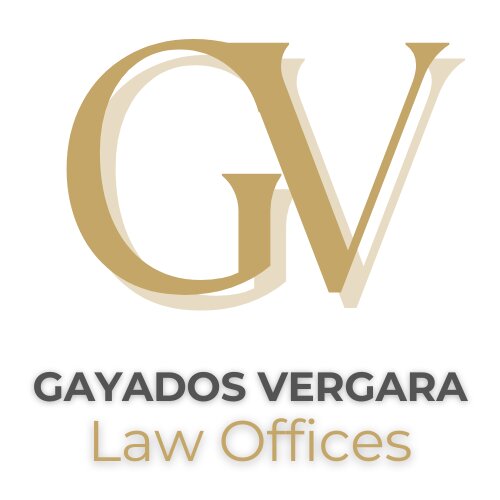Best ESG Advisory & Compliance Lawyers in Philippines
Share your needs with us, get contacted by law firms.
Free. Takes 2 min.
Or refine your search by selecting a city:
List of the best lawyers in Philippines
About ESG Advisory & Compliance Law in Philippines
ESG Advisory and Compliance refers to the legal guidance and services provided to help businesses and organizations comply with Environmental, Social, and Governance (ESG) standards and regulations. In the Philippines, ESG has gained prominence as regulators, investors, and stakeholders increasingly expect companies to demonstrate responsible business practices. ESG compliance covers a broad range of issues, from environmental impact and climate change mitigation to corporate governance and social responsibility. Legal advisors in this field ensure that Philippine organizations meet local and international ESG standards, helping them mitigate risks and unlock opportunities for growth.
Why You May Need a Lawyer
Navigating ESG requirements can be complex, especially given the rapidly evolving regulatory landscape in the Philippines. You may need a lawyer for several reasons, including:
- Developing and implementing ESG policies and frameworks tailored to your business
- Ensuring compliance with local environmental laws, labor standards, and anti-corruption regulations
- Preparing ESG disclosures or sustainability reports required by regulators, investors, or business partners
- Responding to regulatory investigations or audits relating to ESG matters
- Managing ESG-related risks, including potential reputational and financial risks
- Addressing stakeholder concerns and handling disputes related to ESG issues
- Complying with international ESG standards if your business interacts with global markets
- Seeking certifications or participating in ESG-related initiatives and frameworks
Local Laws Overview
The Philippine legal system has been gradually integrating ESG principles into various laws and regulations. Some key aspects include:
- Securities and Exchange Commission (SEC) Guidelines - The SEC requires publicly listed companies to submit annual Sustainability Reports, which must disclose their ESG practices and performance.
- Environmental Laws - The Philippine Clean Air Act, Ecological Solid Waste Management Act, and Clean Water Act impose specific obligations on businesses to protect the environment and manage waste, emissions, and resource use responsibly.
- Labor and Social Laws - The Labor Code and related statutes require fair labor practices, non-discrimination, workplace safety, and gender equality.
- Anti-Corruption and Governance Laws - Laws like the Anti-Graft and Corrupt Practices Act and the Revised Corporation Code impact corporate governance and ethical business behavior.
- International ESG Standards and Frameworks - Philippine companies, especially those with global exposure, may also need to consider alignment with frameworks such as GRI Standards, TCFD recommendations, and the UN Sustainable Development Goals (SDGs).
Frequently Asked Questions
What is ESG and why is it important for companies in the Philippines?
ESG stands for Environmental, Social, and Governance. It is important because regulators, investors, and consumers expect companies to operate responsibly and disclose their impact on the environment, society, and their corporate governance practices.
Are there specific ESG reporting requirements for Philippine businesses?
Yes, the Securities and Exchange Commission requires publicly listed companies to submit annual Sustainability Reports that detail their ESG initiatives and performance.
How do Philippine environmental laws relate to ESG compliance?
Environmental compliance forms the "E" in ESG. Strict laws such as the Clean Air Act and Solid Waste Management Act set standards that organizations must meet as part of a holistic ESG strategy.
What are common ESG risks for companies in the Philippines?
Common risks include non-compliance with environmental regulations, labor law violations, corrupt practices, poor stakeholder engagement, and lack of transparency in governance.
Is ESG compliance mandatory for all companies?
While public companies have specific disclosure mandates, ESG compliance is increasingly expected of all businesses due to evolving stakeholder demands and possible future regulations affecting more sectors.
How can a lawyer help with ESG compliance?
A lawyer can help you understand relevant laws, create effective compliance policies, prepare necessary reports, and address any legal risks or disputes connected to ESG issues.
What should be included in an ESG policy?
An effective ESG policy should address environmental management, social responsibility (like labor practices and community impact), and sound governance (like anti-corruption and transparency).
Are there penalties for failing to comply with ESG requirements?
Penalties can range from administrative sanctions and fines to reputational damage, business license suspension, or even criminal liability, depending on the specific regulation violated.
How can companies stay updated on ESG legal requirements?
Regularly consult with legal advisors, attend industry seminars, monitor updates from relevant government agencies, and stay informed about international ESG reporting frameworks.
Can ESG compliance help attract investors or customers?
Yes, strong ESG performance can enhance a company's reputation, make it more attractive to socially-conscious investors, and improve relationships with customers seeking responsible businesses.
Additional Resources
Several government agencies, organizations, and resources can provide guidance and support for ESG Advisory and Compliance in the Philippines:
- Securities and Exchange Commission (SEC) - Oversees ESG reporting requirements for public companies
- Department of Environment and Natural Resources (DENR) - Issues guidelines and enforces environmental laws
- Department of Labor and Employment (DOLE) - Administers labor standards and workplace safety regulations
- Anti-Red Tape Authority (ARTA) - Promotes good governance and simplifies government processes
- Philippine Business for Social Progress (PBSP) - A nonprofit group supporting corporate ESG initiatives
- Local chapters of international organizations like Global Reporting Initiative (GRI) - Provide ESG reporting best practices
Next Steps
If you need legal assistance in ESG Advisory and Compliance:
- Assess your organization's current ESG policies and identify areas that may require legal input
- Gather any relevant documents, such as company policies, compliance reports, and regulator correspondences
- Consult with a reputable law firm or legal advisor experienced in ESG matters
- Discuss your goals and challenges to tailor legal guidance to your specific needs
- Stay proactive by arranging regular compliance audits and attending ESG training sessions
- Keep open communication with regulators and industry bodies to ensure ongoing compliance
Lawzana helps you find the best lawyers and law firms in Philippines through a curated and pre-screened list of qualified legal professionals. Our platform offers rankings and detailed profiles of attorneys and law firms, allowing you to compare based on practice areas, including ESG Advisory & Compliance, experience, and client feedback.
Each profile includes a description of the firm's areas of practice, client reviews, team members and partners, year of establishment, spoken languages, office locations, contact information, social media presence, and any published articles or resources. Most firms on our platform speak English and are experienced in both local and international legal matters.
Get a quote from top-rated law firms in Philippines — quickly, securely, and without unnecessary hassle.
Disclaimer:
The information provided on this page is for general informational purposes only and does not constitute legal advice. While we strive to ensure the accuracy and relevance of the content, legal information may change over time, and interpretations of the law can vary. You should always consult with a qualified legal professional for advice specific to your situation.
We disclaim all liability for actions taken or not taken based on the content of this page. If you believe any information is incorrect or outdated, please contact us, and we will review and update it where appropriate.
Browse esg advisory & compliance law firms by city in Philippines
Refine your search by selecting a city.
















